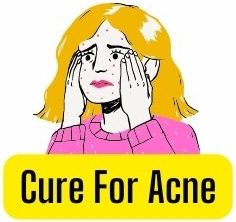Omega-3 fatty acids have long been lauded for their numerous health benefits, particularly in supporting cardiovascular and cognitive function.
However, recent research has shed light on the potential of these essential nutrients to also combat a common skin ailment that plagues individuals across all age groups: acne.
As the quest for clear and healthy skin remains a priority for many, understanding the role of omega-3 fatty acids in addressing this dermatological concern is crucial for those seeking freedom from persistent breakouts.
The relationship between omega-3 fatty acids and acne can be attributed to their anti-inflammatory properties, which work to reduce redness, swelling, and irritation associated with breakouts.
In addition, these nutrients have been found to regulate the production of sebum – an oily substance secreted by the sebaceous glands – thereby minimizing the clogging of pores that often leads to acne formation.
This article delves into the science behind omega-3 fatty acids’ acne-fighting capabilities while exploring various types and dietary sources of these essential nutrients.
Furthermore, guidance on incorporating them into one’s diet will be provided alongside an overview of additional benefits that contribute to overall wellness.
The pursuit of clear skin may no longer seem elusive as awareness surrounding the power of omega-3 fatty acids expands within dermatological discourse.
Key Takeaways
– Omega-3 fatty acids have anti-inflammatory properties that can reduce redness, swelling, and irritation associated with acne breakouts.
– Increased dietary intake of Omega-3s can reduce systemic inflammation levels and improve acne severity, as well as regulate the production of sebum to minimize clogging of pores.
– Omega-3s can also influence hormone synthesis and metabolism pathways, promoting hormonal balance and aiding in the prevention of acne.
– Sources of Omega-3s include oily fish, plant-based sources like flaxseeds and walnuts, and algae-derived supplements, and they offer numerous health benefits beyond just combating acne, including improved cardiovascular and cognitive function.
The Science Behind Omega-3 Fatty Acids and Acne
Delving into the scientific connection between Omega-3 fatty acids and acne reveals a fascinating interplay of inflammation reduction, hormonal regulation, and overall skin health promotion.
Research has shown that Omega-3 fatty acids possess potent anti-inflammatory properties which can be beneficial in mitigating the inflammatory response associated with acne breakouts.
This inflammation reduction is primarily attributed to their ability to modulate the production of eicosanoids, bioactive lipid mediators derived from polyunsaturated fatty acids involved in cellular signaling and inflammatory responses.
Furthermore, studies have indicated that increased dietary intake of Omega-3 fatty acids may contribute to a more balanced ratio of Omega-6 to Omega-3, which can reduce systemic inflammation levels and subsequently improve acne severity.
In addition to their anti-inflammatory effects, Omega-3 fatty acids also play a critical role in hormonal balance by influencing hormone synthesis and metabolism pathways.
Imbalances in hormones such as insulin-like growth factor 1 (IGF-1) and sex hormones are often implicated in acne pathogenesis due to their impact on sebum production, keratinocyte proliferation, and inflammatory cytokine expression within the pilosebaceous unit.
The ingestion of omega-3-rich fish oils has been reported to alter serum concentrations of IGF-binding proteins as well as help regulate sex hormone levels through interactions with cytochrome P450 enzymes involved in steroidogenesis.
Consequently, incorporating these essential nutrients into one’s diet may support optimal skin health through multiple mechanisms while simultaneously providing an overall sense of freedom from the burden of persistent acne symptoms.
Types of Omega-3 Fatty Acids
Examining the various types of these essential nutrients reveals three primary forms: ALA (alpha-linolenic acid), EPA (eicosapentaenoic acid), and DHA (docosahexaenoic acid). These omega-3 fatty acids are crucial for maintaining overall health, with each type having its unique benefits.
ALA is primarily found in plant sources like flaxseed, walnuts, and chia seeds, while EPA and DHA are most abundant in fish and other marine life. The human body can convert some ALA into EPA and DHA; however, this conversion process is relatively inefficient.
Consequently, it is vital to consume adequate amounts of all three types through a balanced diet or supplementation.
EPA benefits extend beyond general health maintenance to include anti-inflammatory properties that can be particularly helpful in combating acne.
Research has shown that increased EPA intake may help reduce the production of inflammatory compounds related to acne formation, such as leukotrienes.
Additionally, both EPA and DHA play crucial roles in supporting brain function, cardiovascular health, immune system regulation, and eye health.
The importance of DHA lies predominantly in its contributions to neurological development during pregnancy and infancy; thus ensuring an adequate supply is essential for optimal growth and development.
Including a variety of omega-3-rich food sources or supplements containing both EPA and DHA will not only provide individuals with numerous health benefits but may also aid in their pursuit of freedom from acne-related concerns.
Dietary Sources of Omega-3 Fatty Acids
Exploring dietary sources of omega-3 fatty acids is akin to embarking on a treasure hunt for essential nutrients that support overall health and well-being. These polyunsaturated fats play a crucial role in acne prevention, as they help regulate inflammation, hormone production, and cell function.
To capitalize on the acne-busting benefits of omega-3 fatty acids, it is important to identify and consume foods rich in these essential nutrients.
Some of the most potent sources include oily fish like salmon, mackerel, herring, sardines, and anchovies; plant-based options such as flax seeds, chia seeds, walnuts; and algae-derived supplements.
Research suggests that incorporating these Omega-3 sources into one’s diet can lead to significant improvements in skin health. For instance, a study published in the Journal of the American College of Nutrition found that participants who consumed more fish oil experienced fewer acne breakouts compared to those who had lower intakes.
Additionally, plant-based sources contain alpha-linolenic acid (ALA), which converts into eicosapentaenoic acid (EPA) and docosahexaenoic acid (DHA) – two types of omega-3s that have been linked to reduced inflammation and protection against certain skin conditions.
Thus, making mindful choices about one’s diet can open up new pathways towards achieving clear skin while also promoting overall health through the consumption of nutrient-dense foods abundant in omega-3 fatty acids.
Incorporating Omega-3 Fatty Acids into Your Diet
Incorporating these essential nutrients into one’s daily meals can be achieved through various strategies, such as consuming fish servings several times per week, adding plant-based options to salads or smoothies, and considering algae-derived supplements for a comprehensive approach towards improved skin health and overall well-being.
Research has shown that regular consumption of Omega-3 fatty acids can help reduce inflammation and aid in the prevention of acne breakouts.
By including a variety of Omega-3 rich food sources in one’s diet, it becomes easier to attain the recommended daily intake and experience the acne-busting benefits.
When planning meals to incorporate more Omega-3 fatty acids into one’s diet, it is important to consider both animal-based and plant-based sources. The table below provides examples of different food sources along with their respective Omega-3 content:
| Food Source | Omega-3 Content |
|---|---|
| ———————– | ——————— |
| Salmon | High |
| Flaxseeds | Moderate |
| Algae-derived Supplements | Varies |
For individuals who may not have access to fresh fish or prefer vegetarian options, there are alternative methods for introducing these vital nutrients into your diet. Acne-fighting recipes that include ingredients like flaxseeds or chia seeds can be easily incorporated into breakfast bowls or smoothies.
Additionally, Omega-3 supplements derived from algae are a reliable source for those seeking an efficient way to consume these essential fatty acids without relying on dietary choices alone.
In conclusion, adopting a diverse array of Omega-3-rich foods will assist in achieving optimal skin health while also catering to individual preferences and dietary restrictions.
Additional Benefits of Omega-3 Fatty Acids
Delving into the world of essential nutrients, one might ask: what other advantages do these remarkable compounds offer beyond supporting skin health?
Research has demonstrated that Omega-3 fatty acids play a pivotal role in brain health and cognitive function. According to numerous studies, they are crucial for proper brain development in infants and young children, while also aiding in the maintenance of healthy brain function throughout adulthood.
Furthermore, evidence suggests that adequate Omega-3 intake may reduce the risk of neuro degenerative diseases such as Alzheimer’s disease and Parkinson’s disease.
Thus, incorporating these vital nutrients into one’s diet not only supports clear skin but also contributes significantly to overall neurological well-being.
In addition to their positive impact on brain health, Omega-3 fatty acids have been linked to heart protection. A growing body of research indicates that regular consumption of foods rich in Omega-3s can help prevent various cardiovascular complications such as high blood pressure, elevated triglyceride levels, and arterial plaque formation.
Moreover, several clinical trials have shown that supplementation with these valuable compounds can reduce inflammation—a major contributing factor in many chronic illnesses—and improve endothelial function.
Consequently, by embracing the acne-busting benefits of Omega-3 fatty acids and incorporating them into one’s daily nutritional regimen, individuals can experience a myriad of additional advantages related to both cognitive performance and cardiovascular wellness.
Frequently Asked Questions
Can Omega-3 fatty acids help with hormonal acne?
Research has indicated that omega-3 fatty acids may potentially alleviate the symptoms of hormonal acne through their influence on hormonal balance and inflammation reduction.
Hormonal acne, a common skin condition, typically results from an imbalance in hormones such as androgens and estrogen, leading to increased sebum production and subsequent clogged pores.
Omega-3 fatty acids have been demonstrated to modulate the levels of these hormones, thereby contributing to a more balanced hormonal environment within the body.
Moreover, these essential fatty acids possess potent anti-inflammatory properties which can help mitigate the inflammatory response associated with acne breakouts.
Consequently, incorporating omega-3 rich foods or supplements into one’s diet may offer a promising avenue for individuals seeking relief from persistent hormonal acne while simultaneously promoting overall health and well-being.
Are there any potential side effects or risks of consuming too much Omega-3 fatty acids for acne treatment?
While no magic bullet exists for treating acne, the use of omega-3 fatty acids has shown promise in combating this skin condition. However, it is crucial to consider the potential side effects or risks associated with consuming excessive amounts of these fatty acids.
Omega-3 overdose may result in adverse effects such as gastrointestinal issues, blood thinning, and lowered immune function. Furthermore, some individuals might experience allergic reactions to fish oil supplements containing omega-3s, leading to symptoms like rash and itching.
It is essential to consult a healthcare professional prior to using omega-3 supplementation for acne treatment in order to strike the right balance between benefits and potential risks.
This evidence-based approach empowers individuals seeking freedom from acne-related concerns while ensuring their overall health remains un-compromised by unintended consequences.
Can Omega-3 fatty acid supplements interact with acne medications or other skincare products?
Acne medication interactions and skincare compatibility are essential considerations when introducing omega-3 fatty acid supplements into a treatment regimen.
Although omega-3 fatty acids have demonstrated potential benefits in ameliorating acne symptoms, it is crucial to assess their possible interactions with other medications or products applied topically or ingested.
Some studies suggest that these supplements may interact with blood-thinning medications, potentially increasing the risk of bleeding; however, evidence regarding direct interaction with acne medications remains limited.
As individual responses to treatments vary considerably, consultation with a dermatologist or healthcare professional is recommended before combining omega-3 fatty acid supplements with existing acne therapies to ensure optimal outcomes and minimize any adverse effects.
How long does it take to see improvements in acne after incorporating Omega-3 fatty acids into your diet?
Acne inflammation can often feel like an unwelcome storm cloud hovering over one’s complexion, but incorporating omega-3 fatty acids into one’s diet may prove to be the silver lining.
Dietary sources of these essential fats—such as fish, nuts, and seeds—have been shown to possess anti-inflammatory properties that could potentially alleviate acne symptoms.
While individual results may vary, some research suggests that noticeable improvements in acne may be observed within 6 to 12 weeks of consistent omega-3 supplementation or consumption through diet.
This timeframe allows for the body to adjust and respond positively to the increased intake of these beneficial nutrients.
By embracing a dietary shift towards omega-3-rich foods, individuals suffering from acne might find themselves on a path towards clearer skin and newfound freedom from their persistent blemishes.
Are there any specific age groups or demographics that may benefit more from Omega-3 fatty acids for acne treatment?
Research indicates that both teenage and adult populations can potentially benefit from the incorporation of omega-3 fatty acids in their diet for acne treatment.
Teenage benefits are particularly noteworthy, as adolescence is a common period for the onset of acne due to hormonal fluctuations and increased sebum production.
In addition, adult acne, which affects a significant portion of individuals in their 20s and beyond, has been linked to inflammation and oxidative stress – factors that may be mitigated by the anti-inflammatory properties of omega-3 fatty acids.
As such, it appears that various age groups and demographics experiencing acne issues might experience improvements upon incorporating these essential nutrients into their daily dietary intake.
Conclusion 💭
In conclusion, omega-3 fatty acids have demonstrated significant acne-busting benefits due to their anti-inflammatory properties and ability to regulate hormonal balances.
The incorporation of these essential nutrients into one’s diet can lead to improved skin health while also providing numerous additional health benefits.
A study by the American Journal of Clinical Nutrition found that participants who consumed higher amounts of omega-3 fatty acids experienced a 22% decrease in acne severity.
This statistic emphasizes the importance of incorporating these essential nutrients into a balanced diet for optimal skin health and overall well-being.




